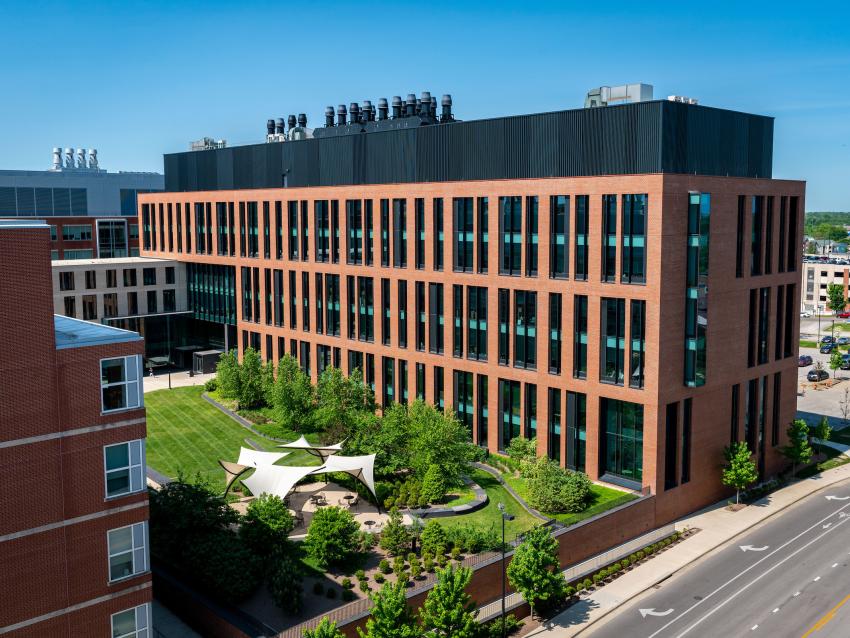
Our Vice President for Research
Campus Community,
Dr. Lisa Cassis has informed me that she intends to resign after a decade as vice president for research — a period of remarkable growth in an enterprise so critical to our University and our mission to advance Kentucky.
Lisa plans to return to the faculty later this summer, as a professor in the Department of Pharmacology and Nutritional Sciences in the College of Medicine. As many of you know, Lisa has been a member of our faculty for more than 35 years and during that time has long been considered one of our institution’s most dedicated researchers, serving as the principal investigator on millions of dollars in federally funded research grants around obesity and cardiovascular diseases.
I will be seeking nominations in the coming days from the campus for an acting vice president for research.
During Lisa’s tenure as vice president, our research enterprise has grown 88% to $488 million in external grants and contracts in FY 2024. UK Research generated $925 million in economic activity across Kentucky in FY 23, almost double what it was less than 10 years ago.
Yet even more remarkable than the sheer growth in numbers has been the scale of our ambition and resolve, under Lisa’s leadership, to use the engine of research to do and be more for our state.
Under Lisa’s guidance, UK developed Research Priority Areas (RPAs) — six domains of potential research excellence that are specifically tied to the state’s most significant challenges. That initiative has grown to eight areas — cancer, substance use disorder, obesity and diabetes, cardiovascular diseases, issues of equitable access, neuroscience, energy and materials science. Collectively, they generate hundreds of millions of dollars annually in research activity.
Lisa’s drive and focus also helped lead to the construction of the Healthy Kentucky Research Building (HKRB), a true partnership with campus collaborators, policymakers and donors around the vision of a facility to bring together researchers across disciplines to seek solutions to our most intractable health concerns. HKRB is at the nexus of several research and health facilities on our campus that are driving discovery and extending healing.
During Lisa’s tenure, UK competed for, and was awarded, the largest research grant in our history, to seek solutions to the scourge of opioid use in counties throughout the state. It was among a series of large impact grants and awards, typically led by leaders in RPAs, that moved our University to take research more quickly from the lab to the bedside and into communities to make an impact. During the COVID-19 pandemic, for example, largely because of the funding of an NIH (National Institutes of Health) Center for Clinical and Translational Sciences, our researchers received millions more in grants related to the study of the virus, including cutting-edge vaccine testing on our campus.
Lisa’s interest in research and leadership extended beyond the realm of health care. During her tenure, UK researchers and scholars won national renown for efforts to combat climate change, advance sustainable manufacturing, promote innovation and entrepreneurship, as well as deepen our understanding of the Civil War and African American literature.
A critical aspect of her efforts to advance UK research included reshaping the research infrastructure through a re-imagining of entrepreneurship and innovation. That effort included revising the campus structure for grants administration, developing a nationally recognized research data analytics team and platforms, improving access to cutting-edge equipment within research support cores, facilitating complex proposal development and research leadership and establishing programs that celebrated excellence across UK’s full spectrum of research.
All these efforts underscore Lisa’s tireless commitment to our role as Kentucky’s land-grant institution to ensure that research, so critical to what we do, reaches across all facets of our mission — education, service and care. She has led by serving as a role model, continuing an active, externally funded research program over her 10 years of service as vice president.
Lisa has also been a leader in our community on other challenges, from shepherding efforts to rethink the structure of our research enterprise to helping co-facilitate a work group as part of Project Accelerate, the directive our Board of Trustees gave us to find ways to quicken the pace of our efforts to align with Kentucky’s priorities.
We will, of course, miss Lisa’s outstanding leadership as vice president. But I am very appreciative that she will continue her service while we search for an acting vice president for research and that she will remain a member of our scholarly community, continuing her own important research agenda.
I know you join me in thanking Lisa for her leadership of one the most important parts of our mission and her compelling record of service as a researcher and scholar in our community. Lisa exemplifies what it means to lead at a university so focused on its mission and on the state we are all committed to serving.
Eli Capilouto
President